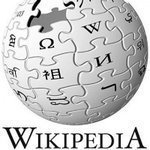Wikipedia shakes Russian mindset
The most popular electronic encyclopedia Wikipedia disabled its Russian segment Tuesday, July 10. The action was conducted as a protest against the draft law on the "black lists" of websites. The bill is currently under consideration in the State Duma of Russia. Wikipedia's decision to close down its Russian part stirred quite a controversy among the Internet community, business and government. Many tried to analyze to which extent Wikipedia's protest was fair and whether it was fair at all. The State Duma will give the bill a second reading on Wednesday.

Amendments to the Law "On Information", "On the Protection of Children", "On Communication" and to the Code of Administrative Offences were submitted to the State Duma by deputies, Elena Mizulina ("Just Russia"), Sergei Zheleznyak ("United Russia"), Sergei Reshulsky (CPRF ) and Jaroslav Nilov (LDPR). Such measures, as the authors state, are needed to struggle against illegal content on the Internet by creating a registry, which will include domain names or generic indexes of web pages, as well as network addresses of the websites containing the information, the distribution of which is banned in Russia. This stands for child porn, and propaganda of drugs and the activities which threaten the life or health of children.
As soon as a website falls into this "black list", the provider hosting the offending resource, is supposed to notify the owner and request the immediate removal of the page that contains the prohibited information. If the removal does not take place during 24 hours, the provider will have to block the site. The same obligations are applied to operators that provide Internet access services. In the event neither the provider nor the operator take any actions, they will have to share the responsibility, although the law does not specify what kind of responsibility this may entail.
Representative of mass media outlets and popular Internet resources, such as, for example, Live Journal and Wikipedia, stood up against the adoption of these rules. The Human Rights Council under the Russian President called the initiative "the legalization of censorship."
Free online encyclopedia Wikipedia arranged a protest against the adoption of the Law on the Protection of Children. On Tuesday, the portal stopped working for 24 hours, having left only one page in the Russian version: "Today, the Wikipedia community protests against the dangerous censorship to free knowledge, open to all mankind. We ask your support in opposing this bill."
Spokespeople for Russia's national Mail.Ru Group said that online resources should remain available, although director of Government Relations, Mikhail Yakushev, said that it was too early to talk about how the adoption of this bill may affect the Russian Internet.
"The fact is that the proposed measures of content filtering in order to counter the distribution of information undesirable for children deserve serious consideration. As far as we know, there was no real discussion of the bill conducted either in the expert community, or in the government," Yakushev.
In his view, the bill can still be seriously improved based on the discussion, which should first take into account the possible consequences of its adoption.
Representatives of "Live Journal" also expressed concerns. They said that the filtering of Internet sites under the "black list" and the blocking of Internet resources would lead to censorship. "Unfortunately, the practice of law in Russia indicates a high probability of the worst-case scenario," says the official report of the portal.
One of Russia's major social network, VKontakte, also supported the strike. A banner appeared on the pages of vk.com Tuesday evening to take people to the statement of the Russian Wikipedia.
The National Association of Broadcasters said the amendments to the legislation on the protection of children were premature. Representatives of RTR, TV Center, NTV, Ren TV, STS and TNT appealed to the chairman of the State Duma with a request to delay the entry of the law at least for a year. They noted that they fully supported the initiative of making such a law, but at the moment it required significant improvements, since it contained "a large number of controversial and highly subjective provisions."
Subscribe to Pravda.Ru Telegram channel, Facebook, RSS!




